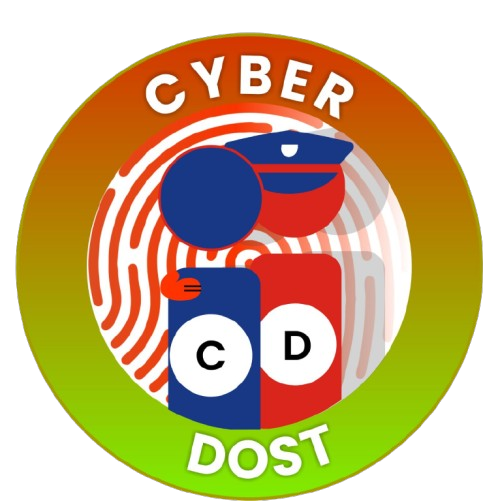National Council for Vocational Training (NCVT))
Engineering Trades – Duration Two Years
1. TOOL & DIE MAKER (DIES & MOULDS)- Tool and Die Makers build, repair and modify custom made prototypes or special tools, Dies, Moulds, Die casting Moulds and various types of mechanical devices. Dies and moulds are metal forms used for moulding plastics or other moulding material. Tool and Die Makers fabricate various parts, like pieces of a puzzle, which require perfect fitting. While this occupation is closely allied with the machinist trade and encompasses many of the same skills, Tool and Die Makers usually specialize in jobs spending more time in fitting and assembling precision components which are required for plastic injection moulds and die cast moulds. A Tool and Die maker’s work depends up on precise measurements and accuracy, as such math skills are important. Also, they must be able to read and interpret information from design drawings and specifications to fabricate all types of Dies and Moulds. Being mechanical minded is an additional skill. Plan and organize assigned work and detect & resolve issues during execution. Demonstrate possible solutions and agree tasks within the team. Communicate with required clarity and understand technical English, Sensitive to environment, self-learning and productivity
2. DRAUGHTSMAN (CIVIL) - The course gives a wide knowledge on construction related manual and CAD drawings, Surveying, Materials, Concrete Technology, and Building Specialization in Construction. One can take gainful employment with construction Industry, Architectural firms / Designers / PWD etc.
3. DRAUGHTSMAN (MECHANICAL) - Professional Knowledge subject is simultaneously taught in the same fashion to apply cognitive knowledge while executing task. In addition components like physical properties of engineering materials, interchangeability, method of expressing tolerance as per BIS Fits, different types of iron, properties and uses, special files, honing, metallurgical and metal working processes such as heat treatment, the various coatings used to protect metals, different bearing, working material with finished surface as aluminum, duralumin and stainless steel, topics related to non-ferrous metals, method of lubrication are also covered under theory part. At the end part of each semester, the trainees should express their skills by presenting project works. Total three projects need to be completed by the candidates in a group. In addition to abovecomponents the core skills components viz., workshop calculation & science, engineering drawing, employability skills are also covered. These core skills are essential skills which are necessary to perform the job in any given situation.
4. ELECTRICIAN - Electrician General; installs, maintains and repairs electrical machinery equipment and fittings in factories, workshops power house, business and residential premises etc. Studies drawings and other specifications to determine electrical circuit, installation details etc. Positions and installs electrical motors, transformers, switchgears. Switchboards and other electrical equipment, fittings and lighting fixtures. Makes connections and solders terminals. Tests electrical installations and equipment and locates faults using mugger, test lamps etc. Repairs or replaces defective wiring, burnt out fuses and defective parts and keeps fittings and fixtures in working order. May do armature winding, draw wires and cables and do simple cable jointing. May operate, attend and maintain electrical motors, pumps etc.Electrical Fitter; fits and assembles electrical machinery and equipment such as motors, transformers, generators, switchgears, fans etc., Studies drawings and wiring diagrams of fittings, wiring and assemblies to be made.
5. ELECTRONICS MECHANIC - Electronic Equipment Mechanic repairs electronic equipment, such as computers, industrial controls, transmitters, and tele-metering control systems following blueprints and manufacturer's specifications and using hand tools and test instruments. Tests faulty equipment and applies knowledge of functional operation of electronic units and systems to diagnose cause of malfunction. Tests electronic components and circuits to locate defects, using instruments, such as oscilloscopes, signal generators, ammeters and voltmeters. Replaces defective components and wiring and adjusts mechanical parts, using hand tools and soldering iron. Aligns, adjusts and calibrates testing instruments. Maintains records of repairs, calibrations and test.
6. MACHINIST GRINDER - Grinding experience will be in the field of “Tool” Grinding, Machinist (Grinder) setup and operates variety of machine tools, and fits and assembles parts to fabricate or repair machine tools and maintain industrial machines, applying knowledge of mechanics, shop mathematics, metal properties, layout, and machining procedures. The trainees, admitted after successful completion of their training, acquire the skills on various operations in different grinding machines Viz. Centre less grinder, Crankshaft Grinders, Internal & External Grinders, Tool & Cutter grinder apart from basic knowledge on machines. One can take Govt. / Private Employments.
7. MECHANIC MOTOR VEHICLE - The course broadly covers the complete functioning, overhauling of Petrol & Diesel Engines of vehicles of all categories being fuelled by Petrol, Diesel & Gases The course has a good demand in the Automobile industry thereby giving advantage for either employment or self-employment.
8. MECHANIC REFRIGERATION AND AIR CONDITIONER -The course gives an in-depth knowledge on Repair & Maintenance of Refrigerators, Centrally Air-conditioning system & Air-conditioners available in the market. On Successful completion, trainees can be absorbed in Railways, Govt. / Public Sector under takings apart from self-employment.
9. FITTER - Fitter is a person who uses machine tools to make or modify parts, primarily metal parts, and a process known as machining. This is accomplished by using machine tools to cut away excess material such as a woodcarver cuts away excess wood to produce his work. The demand of fittings of various nature, Plumbing, Welding, Black smithy, Knowledge on various Lathes, drilling Machines, Sheet Metal Works etc. The fitter Workshops are equipped with modern and sophisticated Machineries, Equipment & Tools. Theprecision works are mainly handled by fitters in the Industries.
10. MACHINIST - Machinists use machine tools, such as lathes, milling machines and grinders to produce precision metal parts. Although they may produce large quantities of one part, precision machinists often produce small batches or one-of-a-kind items. They use their knowledge of the working properties of metals and their skill with machine tools to plan and carry out the operations needed to make machined products that meet precise specifications. The parts that machinists make range from bolts to automobile pistons. Some machinists, often called production machinists, may produce large quantities of one part, especially parts requiring the use of complex operations and great precision. Many modern machine tools are computer numerically controlled (CNC) or CNC machines.
11. TURNER - The trainees admitted, after successful completion of their training acquire the skills on various operation in different Lathe machines and acquire the skills of Facing, Planning, Turning, Threading (Internal &External), Taper Turning etc. Apart from the conventional machines, they have exposure to acquire skills on CNC Machines, CAD & CAM
Non Engineering Trade – Duration One Year
1. SEWING TECHNOLOGY - This course is meant for the candidates who aspire to become Sewing Machine operator, Assistant to Designer, Assistant worker in Boutique, Assistant to Sample Garment Designer and Assistant to Garment Sample Coordinator.


 आई.टी.आई शाहदरा
आई.टी.आई शाहदरा 


